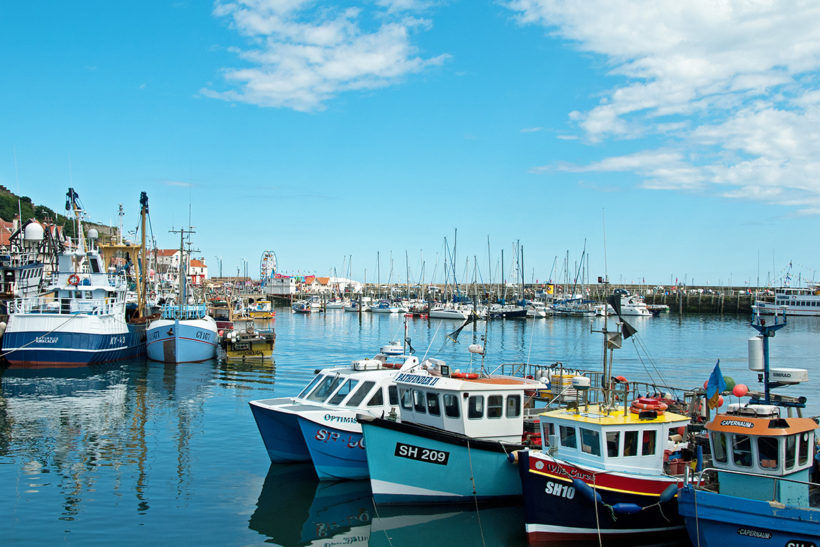The fuel issue is increasingly dominating discussions across the UK and European fishing industries, as prices have escalated in the last few weeks to a point where many classes of vessel are already unprofitable, reports Andy Read.
The NFFO wrote to UK fisheries minister Victoria Prentis pointing this out and, like many others, made the link between fishing activity and the wider food and employment chain, at a time when the imported fish on which the UK relies is likely to see significant price increases and supply issues.
NFFO chief executive Barrie Deas wrote: “The contribution made by the UK fishing industry to national and global food security should be central to the government’s revaluation of its policy priorities moving forward in these new, radically altered conditions.
“Against this background, and the continuing volatility in the price of fuel, we consider that it is vital to begin work on support arrangements that would allow threatened fishing vessels to continue functioning. We are not oblivious to the fact that people across the whole country are suffering from the increased cost of energy and foodstuffs.
“A starting point might be the repurposing of the funds currently allocated under FaSS [the Fisheries and Seafood Scheme]. Put bluntly, investing in infrastructure for the future is important, but only if we maintain the fleets through this (hopefully) short-term crisis.”
The confirmation of a €2bn support package by the French government for French consumers, including a four- month subsidy of €0.35m for the French fishing industry, has caused particular difficulties for the Jersey fleet, which shares grounds with a fleet of French vessels licensed to fish in Jersey waters.
Jersey Fishermen’s Association president Don Thompson said: “Fuel and wages are the two really big costs for the fishermen, and there is a level where boats just become unviable. We are in that zone already.
“We are down to two-thirds of what we had for a fleet, and to see the boats now tied up when they should be fishing is terrible.
“What really upsets the fishermen is to see that French boats are still licensed by Jersey, still fishing in our waters on our stock, and receiving a subsidy so that they can stay viable while our boats are tied up.”
In Northern Ireland, where the Nephrops fleet in particular is only just recovering from the major setbacks that Covid created for markets, Northern Ireland FPO chief executive Harry Wick told Fishing News: “Suspension of excise duty our boats pay for fuel is something we hope that DAERA will look at. We are discussing the possibility of a temporary scheme between April and June, but the exact nature or value has yet to be decided.
“We understand that this is a national issue that affects everyone, and that we need a careful and strong business case to be developed – and that in the longer term, fuel support is not possible.
“As a board member of Seafish, I was also pleased it took onboard our requests to use the cost and earnings analysis as a basis for calculating the impacts of the new fuel crisis on the industry, particularly those sectors now rendered unprofitable.
“It is this type of work, that supports evidence-based decision-making, that can best help the industry to weather this second major storm to hit us in as many years.”
Highlighting the impact of fuel increases across the entire fishing industry, including smaller operators, the Seafarers’ Advice and Information Line said “Boats are finding it unsustainable to go out and fish with the current fuel price increases. Inevitably, this is hitting the smaller companies harder.
“We encourage fishers to contact Seafarers’ Advice to check what type of assistance is available through existing hardship funds.”
In Europe, an estimated 6,000 of the 9,000 Spanish vessels followed a call from fishermen’s leaders for a temporary tie-up last week, to highlight their plight and requests for financial support similar to that provided to French fishermen.
Patrick Murphy, CEO of the Irish South and West Fish Producers’ Organisation, stated in a letter to Irish minister of the marine Charlie McConalogue, copied to the EU commissioner, that the bulk of the Irish fleet would soon be tied up, creating food insecurity and knock-on impacts across the entire value chain, and urged the Irish cabinet to approve emergency fuel subsidies for the fleet or, failing that, a funded tie-up scheme.
At EU level, Charlina Vitcheva, director-general of DG MARE, told the North Western Waters Advisory Council and the North Sea Advisory Council: “We are working to act quickly, in the coming days, to address the real needs of the sector.
This includes looking at possible reallocation of the existing funding under the EMFF (2014- 2020) and triggering the crisis mechanism under the EMFAF (2021-2027), as well as EU state aid options.”
EU commissioner Virginijus Sinkevicius tweeted: “Our fisheries, aquaculture and processing sectors are facing big challenges due to high energy, oxygen and raw material prices.
“We will be proposing specific state aid and EMFAF measures to support them, whilst our long-term focus should be on the sector’s decarbonisation.”
This story was taken from the latest issue of Fishing News. For more up-to-date and in-depth reports on the UK and Irish commercial fishing sector, subscribe to Fishing News here or buy the latest single issue for just £3.30 here.






